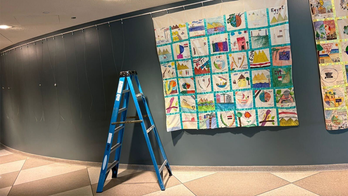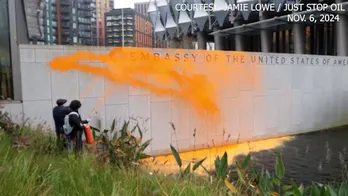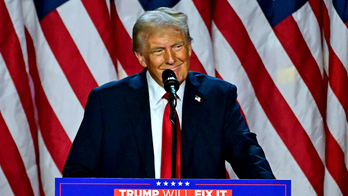Why pandemic researchers are talking about raccoon dogs
A few weeks ago, raw data was quietly posted to a virology database by researchers affiliated with China's Center for Disease Control and Prevention. The data was precious, gathered at the Huanan Seafood Wholesale Market in Wuhan, China — the early epicenter of the pandemic — in January and February 2020.
It caught the attention of Florence Débarre, a researcher who works at CNRS, the French national research agency.
After quickly downloading the data, an international team of researchers from Europe, North America and Australia conducted an analysis and uncovered key details about how the SARS-CoV-2 pandemic may have began. They published their findings in a report this week.
Katherine J. Wu, science writer at The Atlantic, broke the story. She talks to Short Wave co-host Emily Kwong about this new analysis — the strongest evidence yet on the pandemic's natural origins — what questions remain and why the genetic material of raccoon dogs being found in the mix matters.
As a scientific endeavor, virus hunting takes years. Data transparency is paramount, and officials in China have been resistant to sharing information. The origins of the 2002-2004 SARS outbreak weren't known for a decade. You can listen to Emily's 2020 conversation with Dr. Lin-Fa Wang about this SARS outbreak — referenced in this episode — here.
To dive into emerging genetic evidence of this pandemic's origins, read:
- Genetic evidence of susceptible wildlife in SARS-CoV-2 positive samples at the Huanan Wholesale Seafood Market, Wuhan: Analysis and interpretation of data released by the Chinese Center for Disease Control, Crits-Christoph et. al (March 2023)
- The Strongest Evidence Yet That an Animal Started the Pandemic, Katherine J. Wu for The Atlantic (March 2023)
- What does science say about the origin of the SARS-CoV-2 pandemic?, Michaeleen Doucleff for NPR (February 2023)
To learn more about how viruses spillover from animals to humans, check out the series "Hidden Viruses: How Pandemics Really Begin" from NPR's Goats and Soda team.
Listen to Short Wave on Spotify, Apple Podcasts and Google Podcasts.
Today's episode was produced by Thomas Lu, edited by managing producer Rebecca Ramirez and fact-checked by Anil Oza. Special thanks to Warren Greatsinger and Ted Hancock for technical support.
Disclaimer: The copyright of this article belongs to the original author. Reposting this article is solely for the purpose of information dissemination and does not constitute any investment advice. If there is any infringement, please contact us immediately. We will make corrections or deletions as necessary. Thank you.







